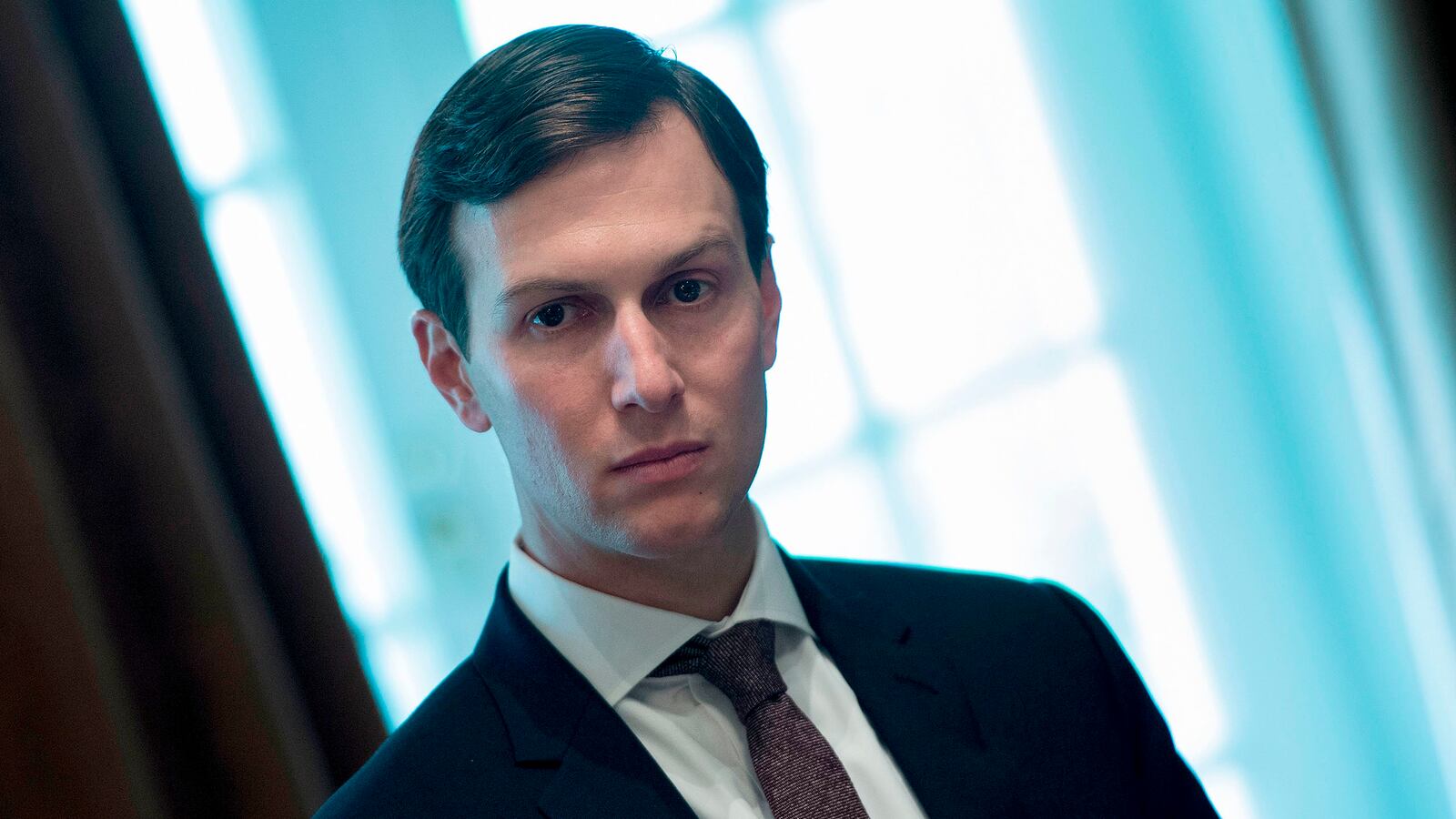Jared Kushner may not be done telling the Capitol Hill’s Russia investigators what he knew, saw and heard.
Though Kushner gave an hours-long interview to House intelligence committee staff in late July, The Daily Beast has confirmed that Democrats on the panel want to get the presidential son-in-law to answer additional questions.
“We’d want to invite him back and interview him again,” a Democratic member of the House intelligence committee told The Daily Beast about Kushner.
Sources told The Daily Beast that one aspect of their list of outstanding questions concerns Kushner’s foreign contacts—something that featured prominently in former national security adviser Mike Flynn’s guilty plea to special prosecutor Robert Mueller this month.
But it’s unclear how much progress they’ll make. The Republican majority appears unwilling to investigate Kushner too deeply, though staffers for each party on the committee are discussing a Kushner return. The committee’s Russia inquiry is deeply riven by partisanship, and it’s unknown if the Republicans will accede to the request to have Kushner back—or seek documents from him.
A representative for Mike Conaway, the senior Republican on the probe, declined to “discuss internal specifics of the investigation, as it is ongoing.”
An aide to Rep. Adam Schiff of California, the senior Democrat on the committee, confirmed that the Democrats want Kushner to come back before the inquiry.
“Congressman Schiff believes that recent developments, as well as additional document production, necessitate bringing Mr. Kushner back before the committee again, as we stated might be necessary after the Majority accommodated his request to come in so early in the investigation,” the aide said on condition of anonymity.
The push adds to Kushner’s ongoing political and legal woes stemming from his roles in Donald Trump’s presidential campaign.
Kushner, a real estate executive developer before his father-in-law ran for president, has a sprawling White House portfolio with a substantial foreign-policy component.
Yet Kushner did not list any foreign contacts on his security-clearance application form, a standard practice for vetting counterintelligence risks entering government service, when he initially submitted it. He retroactively declared, most recently in June, more than 100 meetings with foreign nationals and officials. In October, the director of the background-clearance directorate within the Office of Personnel Management testified to a House panel that the extent of Kushner’s post-facto disclosures was unprecedented.
At least some of those foreign contacts have reportedly sparked Mueller’s interest.
Kushner was present at a June 2016 Trump Tower meeting with Kremlin-connected figures who promised “dirt” on then-presidential rival Hillary Clinton and wanted sanctions on Russia lifted. Additionally, Mueller is reportedly reviewing Kushner’s advice to his father-in-law about firing James Comey, the now-former FBI director whose May dismissal triggered Mueller’s appointment as special counsel.
According to the Wall Street Journal, Mueller is also looking at Kushner due to his transition-era meetings with numerous foreign officials and influential nationals, including with Sergey Gorkov, chief executive of the Kremlin-connected Vnesheconombank, a state-owned Russian bank under U.S. sanctions with deep ties to the Kremlin, for what the bank says was a business meeting and what the White House says was a diplomatic one. (Before the bank was under sanctions, it helped finance Trump Tower Toronto.) Kushner’s companies are hundreds of millions of dollars in debt, particularly for a troubled real estate project at 666 5th Avenue in New York, and he has sought extensive foreign financing from China, Qatar and elsewhere.
Late last year, during the transition, then-Russian ambassador Sergey Kislyak reportedly told his superiors that Kushner had asked him to set up a communications backchannel to the Kremlin away from the prying ears of U.S. intelligence.
And according to a factual stipulation Flynn submitted along with his guilty plea, on December 22, 2016, a “very senior” transition official instructed the retired general to contact Kislyak. The official wanted the Russians to delay or oppose an impending United Nations Security Council vote critical of Israeli settlement construction.
Kushner was quickly identified by journalists as the anonymous transition official, and in a rare public forum on December 4 appeared to confirm his role.
A representative for Kushner declined to comment.







